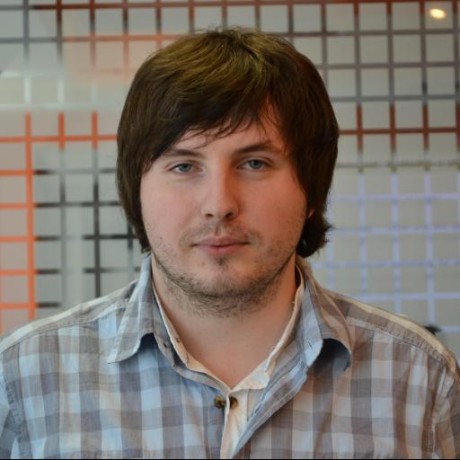commands
You can make structural changes to the scenegraph, and perform other complex operations, by programmatically invoking the same commands as XD users have access to in the UI. Because structural changes have many nuanced rules and behaviors in XD, these calls function more like automating the UI than like low-level APIs.
For example, these methods do not take arguments. Instead, set the selection to the objects you want the command to target, then
invoke the command. Commands may also change the selection when run - for example, group() selects the newly created Group node.
Example
Copied to your clipboardlet commands = require("commands");selection.items = [shape1, shape2, maskShape];commands.createMaskGroup();console.log(selection.items); // [Group]
group()
▸ group()
Wraps the selected objects in a Group, leaving the Group selected afterward. Equivalent to Object > Group in the UI.
Kind: static method of commands
Example
Copied to your clipboardlet shape1 = new Rectangle();// ...configure Rectangle size & appearance...let label = new Text();// ...configure Text content & appearance...// Add both nodes to the current edit context firstselection.insertionParent.addChild(shape1);selection.insertionParent.addChild(label);// Select both shapes, then run the group() commandselection.items = [shape1, label];commands.group();let group = selection.items[0]; // the new Group node is what's selected afterward
ungroup()
▸ ungroup()
Ungroups any of the selected objects that are ungroupable containers (Group, SymbolInstance, RepeatGrid, etc.). Equivalent to Object > Ungroup.
Kind: static method of commands
createMaskGroup()
▸ createMaskGroup()
Creates a masked Group from the selected objects, using the object that is highest in the z order as the mask shape. The mask shape must be a leaf node or BooleanGroup. Equivalent to Object > Mask With Shape.
Kind: static method of commands
Example
Copied to your clipboardlet shape1 = new Rectangle(),shape2 = new Ellipse();// ...configure shapes' size & appearance...let maskShape = new Ellipse();// ...configure mask shape's size...// Create a Masked Group: add all nodes to the current edit context, select them, then run the createMaskGroup() commandselection.insertionParent.addChild(shape1);selection.insertionParent.addChild(shape2);selection.insertionParent.addChild(maskShape); // added last: topmost in z orderselection.items = [shape1, shape2, maskShape]; // order of selection array does not mattercommands.createMaskGroup();let maskedGroup = selection.items[0];
convertToPath()
▸ convertToPath()
Converts each selected object to a Path with the exact same visual appearance. Only applies to leaf nodes and Boolean Groups. Equivalent to Object > Path > Convert to Path.
Kind: static method of commands
outlineStroke()
▸ outlineStroke()
Since: XD 42
Converts each selected object's stroke to a Path with the exact same visual appearance. Only applies to leaf nodes, Groups and Boolean Groups. Equivalent to Object > Path > Outline Stroke.
Example
Copied to your clipboardconst commands = require("commands");// Newly created shape nodes.let shape1 = ...,shape2 = ...;// Select both shapes, then run the Outline Stroke command.selection.items = [shape1, shape2];commands.outlineStroke();console.log(selection.items); // [shape1, outline1, shape2, outline2]
Kind: static method of commands
duplicate()
▸ duplicate()
Duplicates all selected objects, leaving the duplicates selected afterward.
- If the objects are artboards, the duplicates are positioned to not overlap any more artboards, and are placed at the top of the artboard z order.
- If normal objects, each duplicate is in the exact same position as the original, and just above it in the z order (duplicates of a multiple selection will not be contiguous in the z order if the originals were not).
Interactions triggered from the selected objects are only duplicated if the user is currently in the Prototype workspace. Equivalent to Edit > Duplicate.
Kind: static method of commands
bringToFront()
▸ bringToFront()
Brings selected objects to the front of the z order. Equivalent to Object > Arrange > Bring to Front.
Kind: static method of commands
bringForward()
▸ bringForward()
Brings each selected object one step closer to the front of the z order. Equivalent to Object > Arrange > Bring Forward.
Kind: static method of commands
sendToBack()
▸ sendToBack()
Sends selected objects to the back of the z order. Equivalent to Object > Arrange > Send to Back.
Kind: static method of commands
sendBackward()
▸ sendBackward()
Sends each selected object one step closer to the back of the z order. Equivalent to Object > Arrange > Send Backward.
Kind: static method of commands
alignLeft()
▸ alignLeft()
Aligns all selected objects flush left. Equivalent to Object > Align > Left.
Kind: static method of commands
alignRight()
▸ alignRight()
Aligns all selected objects flush right. Equivalent to Object > Align > Right.
Kind: static method of commands
alignHorizontalCenter()
▸ alignHorizontalCenter()
Aligns all selected objects along their horizontal centerlines. Equivalent to Object > Align > Center (Horizontally).
Kind: static method of commands
alignTop()
▸ alignTop()
Aligns all selected objects flush top. Equivalent to Object > Align > Top.
Kind: static method of commands
alignBottom()
▸ alignBottom()
Aligns all selected objects flush bottom. Equivalent to Object > Align > Bottom.
Kind: static method of commands
alignVerticalCenter()
▸ alignVerticalCenter()
Aligns all selected objects along their vertical centerlines. Equivalent to Object > Align > Center (Vertically).
Kind: static method of commands
distributeHorizontal()
▸ distributeHorizontal()
Distributes all selected objects evenly along the X axis. Equivalent to Object > Distribute > Horizontally.
Kind: static method of commands
distributeVertical()
▸ distributeVertical()
Distributes all selected objects evenly along the Y axis. Equivalent to Object > Distribute > Vertically.
Kind: static method of commands
alignToPixelGrid()
▸ alignToPixelGrid()
Shifts all selected objects and their content so they align crisply with the pixel grid. Equivalent to Object > Align to Pixel Grid.
Kind: static method of commands
makeBackground()
▸ makeBackground()
Makes a stack background. Equivalent to Object > Make Background, which is available when selecting a single SceneNode that simultaneously meets the following conditions:
- is a stack cell
- is a valid background candidate
- belongs to a Stack that has no background
- the Stack contains at least two stack cells
For the example below, see layout for examples of creating Stack without background.
Example
Copied to your clipboardconst stack = ...;// suppose this node is a Stack containing at least two stack cellsif (stack.layout.type === scenegraph.SceneNode.LAYOUT_STACK && stack.contentChildren.length > 1) {// assume the first stack cell is a valid background candidateconst futureBackground = stack.contentChildren.at(0);// suppose the Stack has no backgroundif (!stack.layout.padding.background) {console.log(stack.layout.padding.background); // prints `null`selection.items = [futureBackground];commands.makeBackground();console.log(stack.layout.padding.background.name); // prints the name of the "featureBackground" node}}
Kind: static method of commands
replaceBackground()
▸ replaceBackground()
Replaces a stack background. Equivalent to Object > Replace Background, which is available when selecting a single SceneNode that simultaneously meets the following conditions:
- is a stack cell
- is a valid background candidate
- belongs to a Stack that has a background, which is different from the selected stack cell
- the Stack contains at least two stack cells
For the example below, see layout for examples of creating Stack without background.
Example
Copied to your clipboardconst stack = ...;// suppose this node is a Stack containing at least two stack cellsif (stack.layout.type === scenegraph.SceneNode.LAYOUT_STACK && stack.contentChildren.length > 1) {// assume the first stack cell is a valid background candidateconst futureBackground = stack.contentChildren.at(0);// suppose the Stack contains a background, which is different from the selected oneif (stack.layout.padding.background && featureBackground.guid !== stack.layout.padding.background.guid) {console.log(stack.layout.padding.background.name); // prints the name of the actual background nodeselection.items = [futureBackground];commands.replaceBackground();console.log(stack.layout.padding.background.name); // prints the name of the "featureBackground" node}}
Kind: static method of commands
reset3DTransforms()
▸ reset3DTransforms()
Since: XD 47
Resets the 3D properties (X rotation, Y rotation, Z position) of selected objects (but not their content) to 0. Equivalent to Object > Transform > Reset 3D Transforms.
Kind: static method of commands


